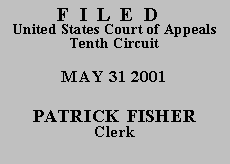

Bruce Wayne Martin, a state prisoner appearing pro se, appeals the dismissal of his complaint filed pursuant to 42 U.S.C. §§ 1983 and 1985. The district court dismissed the complaint, holding that Martin had failed to administratively exhaust his conspiracy claim and failed to sufficiently state a conspiracy claim. We conclude Martin failed to exhaust his administrative remedies on his conspiracy claim and affirm.
The Prison Litigation Reform Act requires administrative exhaustion before a claim can be brought pursuant to section 1983. See 42 U.S.C. § 1997e ("No action shall be brought with respect to prison conditions under section 1983 of this title, or any other Federal law, by a prisoner confined in any jail, prison, or other correctional facility until such administrative remedies as are available are exhausted."). Exhaustion of remedies is now a mandatory requirement under the amended statutes. See McCarthy v. Madigan, 503 U.S. 140, 144 (1992); Garrett v. Hawk, 127 F.3d 1263, 1265 (10th Cir. 1997). "[A] prisoner can only exhaust administrative remedies that are actually available." Id. at 1267.
Martin is a prisoner at Jess Dunn Correctional Center (JDCC) and the correctional center has a grievance process for inmates to file complaints. See Record, Doc. 16 at Exh. A-1. Therefore, Martin was required to file a complaint through JDCC's grievance process prior to filing his complaint. Martin argues that he exhausted his administrative remedies when he appealed from the disciplinary hearing at which his good faith credits were restored. However, that appeal only dealt with Martin's misconduct, it did not exhaust his claim of conspiracy. In order to exhaust his conspiracy claim, Martin would have needed to bring such a claim separately as part of the grievance process.
AFFIRMED.
Entered for the Court
Mary Beck Briscoe
Circuit Judge
*.This order and judgment is not binding precedent, except under the doctrines of law of the case, res judicata, and collateral estoppel. The court generally disfavors the citation of orders and judgments; nevertheless, an order and judgment may be cited under the terms and conditions of 10th Cir. R. 36.3.